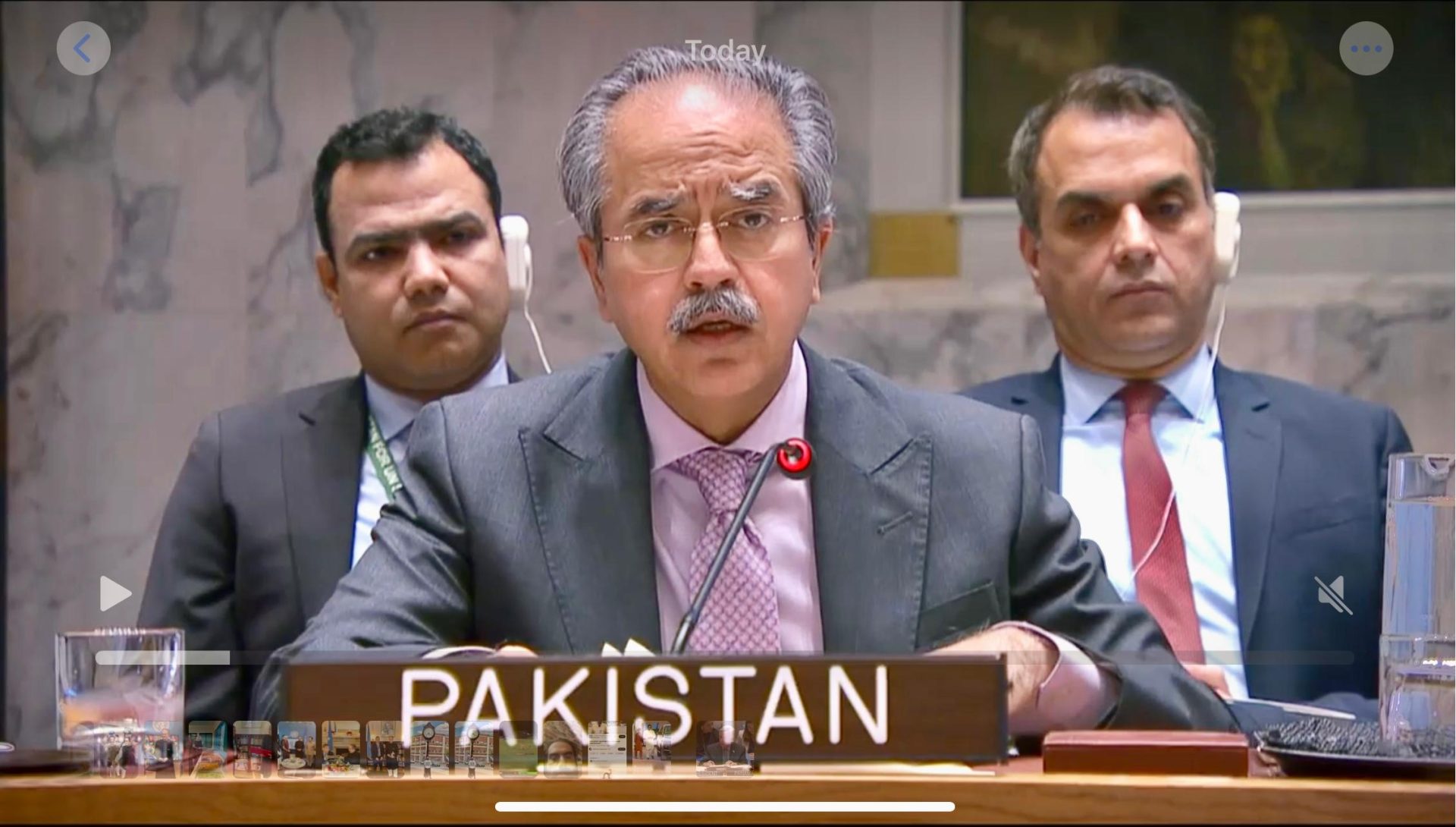
United Nations, August 18, 2025(Kamran Raja): Pakistan has reaffirmed its unwavering support for peace, stability, and the United Nations’ peacekeeping efforts in South Sudan, stressing the urgent need for political trust, inclusivity, and international solidarity to sustain progress. Delivering the national statement at the UN Security Council briefing on South Sudan, Ambassador Asim Iftikhar Ahmad, Pakistan’s Permanent Representative to the United Nations, noted that the political and security situation in the country remains fragile, with escalating tensions threatening the hard-won gains achieved since the 2018 Revitalized Peace Agreement. The Ambassador expressed concern over the detention of key SPLM/A-IO leaders, stressing that such actions undermine trust and inclusivity, which are indispensable for sustainable peace. Pakistan joined the African Union in calling for the immediate release of all detained political figures. Highlighting the upcoming December 2026 elections as a critical milestone, Ambassador Asim underscored that credible and inclusive polls will require international financial, technical, and political support, in addition to an environment of trust and security. He also drew attention to South Sudan’s critical humanitarian crisis, pointing out that armed conflict, climate shocks, cholera outbreaks, and regional spillovers have left millions vulnerable, with more than 1.4 million at risk of flooding. He called for urgent and sustained international support to address these pressing challenges.
Ambassador Asim emphasized Pakistan’s longstanding and significant contributions to the United Nations Mission in South Sudan (UNMISS). As one of the largest troop-contributing countries, Pakistan has:
Constructed more than 80 kilometres of protective dykes and berms to shield displaced communities from floods.
Secured humanitarian supply routes and ensured the operational safety of UN field offices.
Maintained a steadfast commitment to protecting civilians, while strongly condemning attacks on peacekeepers and aid workers, which constitute war crimes.
The Ambassador stressed that UNMISS must be fully resourced, adequately equipped, and politically supported, adding that addressing current troop shortfalls, deployment delays, and logistical challenges along with respect for the Status of Forces Agreement is vital for the mission to deliver effectively on its mandate. Reaffirming Pakistan’s principled stance, Ambassador Asim concluded that South Sudan’s path to peace is challenging but achievable. He emphasized the importance of genuine political commitment, national ownership of the peace process based on trust and inclusion, and sustained international solidarity to realize the promise of peace, stability, and prosperity.